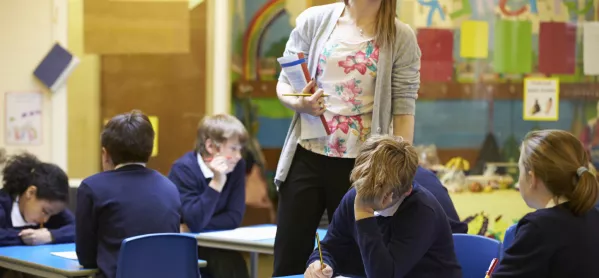Yesterday I stumbled across this interesting article about more US colleges dropping the use of SATs for admissions. It included this striking quote:
“I didn’t feel like my SAT scores adequately depicted how I performed as a student, because I did really well in the classroom.”
In this case an academically successful university student was discussing how her test results failed to reflect her performance in the rest of her schooling.
SATs in the US mean something altogether different to those taken in England. Here they are tests taken by 11-year-olds, the national results of which have just been published.
Notwithstanding the occasional Sats boycott by schools, they are still going strong in the English system and are being reformed to make them harder for the next round in May.
One of the more pleasurable decisions that I took as schools minister was when I abolished Sats for 14-year-olds in 2008. We had just emerged from a damaging marking problem and realised that the cons far outweighed the pros in secondary schooling.
The decision was well received. The shadow secretary of state at the time, Michael Gove, supported us, saying: “…change is necessary. We’ve argued for fewer national tests and more rigour and we want to work constructively to improve the assessment and qualifications regime.”
However, when we made that call, we decided to keep Sats at 11. The basis of this judgement was that we needed externally set and marked national tests in order to inform primary school accountability.
Seven years on, is that still valid?
Clearly, Sats distort activity towards teaching pupils to be good at tests, and away from more meaningful learning. They create stress for teachers and pupils. They cost around £40 million that could be used elsewhere. They are not a fair reflection of how a school is doing across a broad and balanced curriculum.
On the other hand they inform parents of how their child is doing against a national standard. They provide valuable comparative data for Ofsted and for accountability. They allow us a national snapshot of how we are doing year on year. They may be useful for secondary schools to see the performance of new pupils, although many then spend time and money re-testing pupils just a few months after the Sats. They allow ministers to encourage teachers to focus on priorities.
Could all this be achieved with a different system?
Parents can, and should, get a richer picture of the progress of their child than just these test scores. They can use Ofsted judgments to also judge the school - Ofsted could benefit from being less reliant on test scores to inform their findings. The national picture can be shown through sampling, as we do with key stage 2 science. Ministers could use Ofsted as an alternative way to focus on their priorities of grammar or phonics.
Perhaps the final word on whether it is worth retaining Sats should be given to the evidence. Do they make any difference?
The answer would seem to be that if we want Sats to inform parental choice, or to be used to inform high-stakes accountability, then they are not worth it.
The headlines of Professor John Hattie’s celebrated work suggest that choice doesn’t make much difference and that the £40 million spent on tests could be better spent on effective CPD. But this paper by Hattie gives a more nuanced view. With co-author Gavin Brown, Hattie says:
“We consider that regular standardized testing does help in childhood education, provided certain conditions are met…for a standardized test to achieve this goal, the information flow has to be under the control of the school and/or teacher so that: (a) the content of the test is defensible given the teaching context, (b) the analysis of the data is prompt enough to make a difference to the teaching context, and (c) the consequences are low enough so that neither teachers or students are motivated to cheat or game the test.”
The message from Hattie is clear: we should reform Sats but not abolish them. We shouldn’t use them for accountability, but use them for teaching and raising student expectations. And we shouldn’t have to wait three months for the national results.




